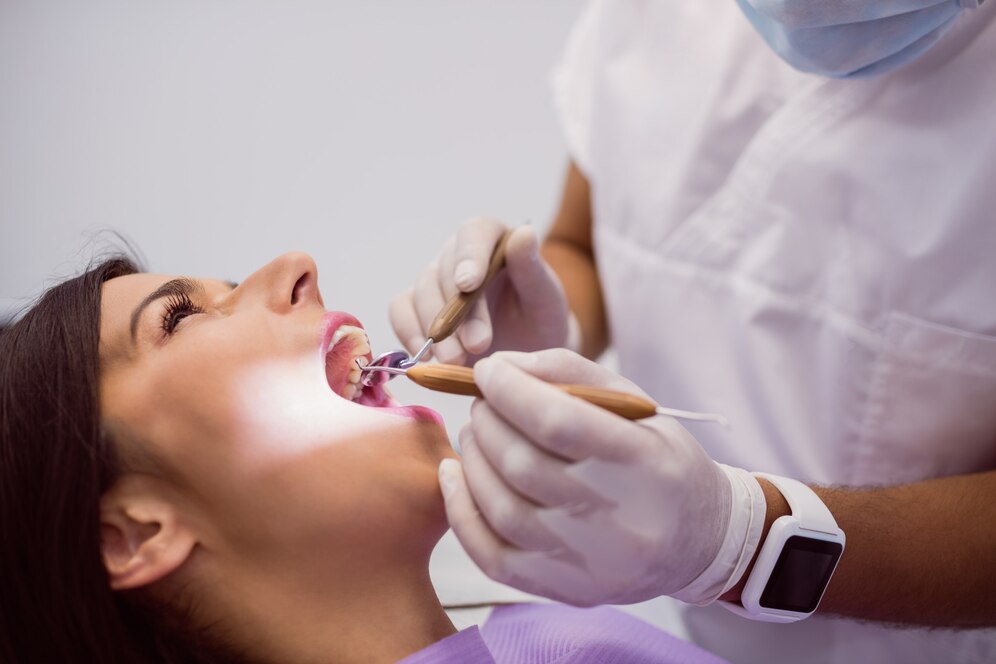Tooth extraction is a dental procedure that involves removing a tooth from its socket in the jawbone. While preserving natural teeth is always a priority, there are situations where extraction becomes unavoidable to protect oral health. Understanding when and why this procedure is necessary can help individuals make informed decisions about their dental care. Below are seven common scenarios where tooth extraction may be recommended.
1. Severe Tooth Decay
Tooth decay, if left untreated, can progress to a point where it severely compromises the structure of the tooth. In its early stages, dental fillings or crowns can repair the damage. However, if the decay reaches the pulp—the innermost part of the tooth containing nerves and blood vessels—the infection may spread, leading to extreme discomfort and swelling. In such cases, extraction is often the best solution to prevent further complications, such as abscess formation or bone infection.
2. Advanced Periodontal Disease
Periodontal disease, commonly known as gum disease, affects the soft tissue and bone supporting the teeth. In its advanced stages, the gums recede, and the bone structure deteriorates, causing teeth to loosen. When the damage is too severe to reverse, tooth extraction may be necessary to stop the disease's progression and prevent the infection from spreading to neighboring teeth and tissues. Extracting a severely compromised tooth allows for proper healing and helps maintain overall oral health.
3. Overcrowding in the Mouth
Sometimes, teeth can become overcrowded, especially when there is insufficient space in the jaw to accommodate all of them. Overcrowding can cause misalignment, which may lead to issues with chewing, speaking, and maintaining good oral hygiene. In orthodontic treatments, dentists may recommend removing one or more teeth to create enough space for braces or aligners to properly reposition the remaining teeth. This strategic extraction ensures better alignment and long-term dental stability.
4. Impacted Wisdom Teeth
Wisdom teeth, or third molars, typically emerge between the ages of 17 and 25. In many cases, these teeth do not have enough room to grow properly, resulting in impaction. Impacted wisdom teeth may grow sideways, remain trapped under the gums, or push against adjacent teeth, causing pain, swelling, and infections. If left untreated, they can also contribute to cysts or damage to the surrounding teeth. Extracting impacted wisdom teeth is a common preventive measure to avoid these complications.
5. Teeth Damaged by Trauma
Accidents, falls, or injuries can cause significant damage to teeth, including fractures, cracks, or dislodgment. While dental procedures such as bonding, crowns, or root canals can sometimes restore damaged teeth, there are instances where the injury is too severe for repair. In such situations, extraction becomes necessary to prevent infection and alleviate pain. Removing the damaged tooth allows for appropriate restorative options, such as implants or bridges, to restore functionality and aesthetics.
6. Preventing Spread of Infection
Infections in the tooth or its surrounding tissues can become severe and pose significant risks to overall health. If a tooth infection spreads beyond the tooth root into the surrounding gums, bones, or bloodstream, it can lead to serious complications. When antibiotics and root canal therapy are not effective in treating the infection, tooth extraction becomes the safest option to stop the spread and protect oral and systemic health.
7. Teeth Affected by Radiation or Chemotherapy
Individuals undergoing radiation therapy to the head or neck, or those receiving chemotherapy, may experience weakened teeth as a side effect. In some cases, compromised teeth can become more susceptible to decay or infection. Dentists may recommend extracting problematic teeth before starting treatment to reduce the risk of oral infections during cancer care. This preventive measure helps protect patients from additional health challenges during a critical time.
The Importance of Timely Intervention
Ignoring dental issues that warrant extraction can lead to severe consequences, such as chronic pain, infection, and bone loss. Timely intervention not only alleviates discomfort but also prevents further complications that could impact overall oral and systemic health. By consulting a trusted dentist, individuals can explore options for extraction and subsequent restoration to ensure their smile remains functional and healthy.
What to Expect During a Tooth Extraction
Understanding the extraction process can help ease anxiety for those undergoing the procedure. Dentists typically perform tooth extractions under local anesthesia to numb the area and minimize discomfort. In more complex cases, such as impacted teeth, sedation may be provided for additional comfort. After the tooth is removed, patients receive detailed aftercare instructions to ensure proper healing. It is crucial to follow these guidelines, which often include avoiding strenuous activity, managing pain with prescribed medications, and maintaining good oral hygiene to prevent complications.
Restorative Options After Tooth Extraction
After an extraction, it is important to replace the missing tooth to preserve oral health and functionality. Missing teeth can lead to bone loss, misalignment, and difficulty chewing or speaking.
Some common restorative options include:
- Dental Implants: A durable and natural-looking option that replaces the tooth root and crown.
- Bridges: A fixed prosthesis that fills the gap created by the missing tooth.
- Dentures: Removable appliances that replace multiple missing teeth.
Consulting with a qualified dentist will help determine the best solution based on individual needs and preferences.
Conclusion
Tooth extraction, while often a last resort, is sometimes necessary to preserve oral health and prevent more serious dental complications. Whether due to severe decay, trauma, or overcrowding, timely extractions and proper restorative care play a vital role in maintaining a healthy smile. Individuals who experience any of the scenarios mentioned above should seek professional dental advice to determine the most appropriate course of action.
For those seeking reliable dental care, Laguna Niguel Smiles Dentistry offers personalized treatment plans tailored to meet each patient’s needs. With a commitment to compassionate care and comprehensive services, the practice ensures optimal oral health and beautiful smiles for every patient. Reach out today to schedule a consultation and take the first step toward a healthier, pain-free smile.





Comments